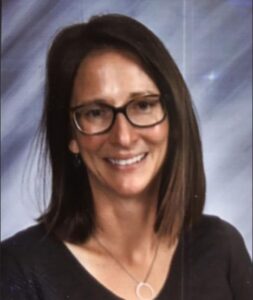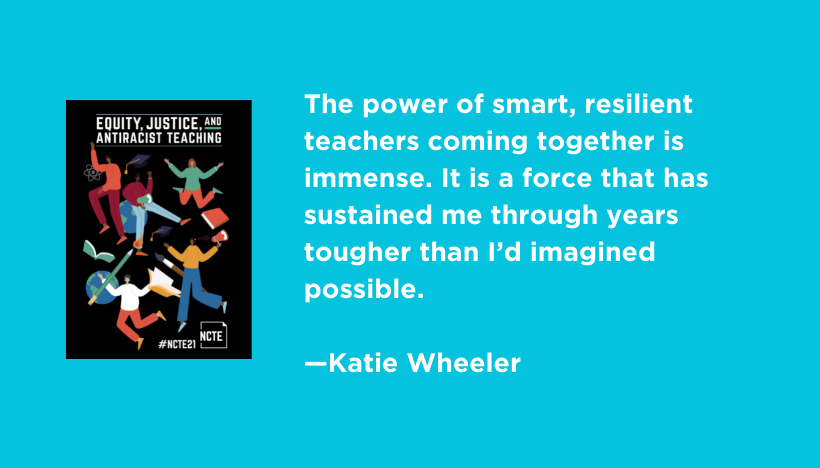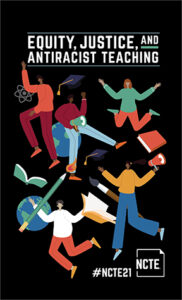This post was written by NCTE member Katie Wheeler.
Eleven years ago, I attended my first NCTE Annual Convention in Orlando, Florida. My true reason for going was to get a better sense of graduate school programs, as many of the places I was considering sent their best and brightest. On the plane ride there, I casually conversed with a man next to me. “It seems kinda like a meeting of the minds,” I said. “Teachers from all across the country gather to share ideas.”
“So someday you’ll have to share your ideas there too then, right?” he asked.
“I doubt I’m qualified,” I snorted, thinking back to a conversation with a principal about what he’d termed “my latest big idea.”
The NCTE Convention was a meeting of the minds. All my favorite teacher minds were there to share their ideas. Other sessions featured teachers I’d never heard of sharing lessons and ideas from their classrooms. It was encouraging to know that what I was doing may have been outside the norm at my own school but was definitely happening in other classrooms across the country. It was comforting to hold my notebook full of new ideas, strategies, and book recommendations. It was also exhausting. Exhausting to know that other teachers were fighting the same systems and limitations I was in order to better support their students. Up to that point, though, I’d felt alone in my exhaustion. I’d thought it was because I was doing something wrong, because I’d seen how it looked easier for others. The teachers who said, “Just tell me what to do.” The teachers who distributed the same worksheets year after year, easily recalling the lessons they’d memorized by heart.
In contrast, I’d found myself in trouble for lessons and books that were too edgy. The volume of our classroom was often not contained within our walls. And I didn’t think it was right for anyone to tell me what to do unless they were willing to spend time in our classroom, living daily life beside us. It was at the NCTE Convention that I first found others who not only believed and taught the same things I did but had the courage to talk about it. When I discovered that their exhaustion and mine were the same, something in me felt a lot more comfortable with the discomfort I’d caused others.
My last night in Orlando, I gathered with a group of colleagues from the Iowa Writing Project. As they talked about the madness of our profession balanced with the life choices of children, partners, hobbies, and obligations, I sighed my exhaustion. My mentor and colleague Jim Davis leaned over, waiting to hear my thoughts. “How does anyone do this for a lifetime?” I asked.
Jim paused, maybe to gather his thoughts, but likely listening to hear if I had more. Then, breaking our silence, he spoke: “I think you’ll find there’s a lot of power at this table.”
Jim was right. The power of smart, resilient teachers coming together is immense. It is a force that has sustained me through years tougher than I’d imagined possible. It is why I keep coming back year after year.

Katie Wheeler is a teacher at McCormick Junior High in Cheyenne, Wyoming. Unfiltered thoughts, awkward talk, and raunchy jokes are just a few reasons why she has chosen to spend all sixteen years of her teaching career in middle school.
It is the policy of NCTE in all publications, including the Literacy & NCTE blog, to provide a forum for the open discussion of ideas concerning the content and the teaching of English and the language arts. Publicity accorded to any particular point of view does not imply endorsement by the Executive Committee, the Board of Directors, the staff, or the membership at large, except in announcements of policy, where such endorsement is clearly specified.
Learn more and register for the
2021 NCTE Annual Convention,
November 18-21!


